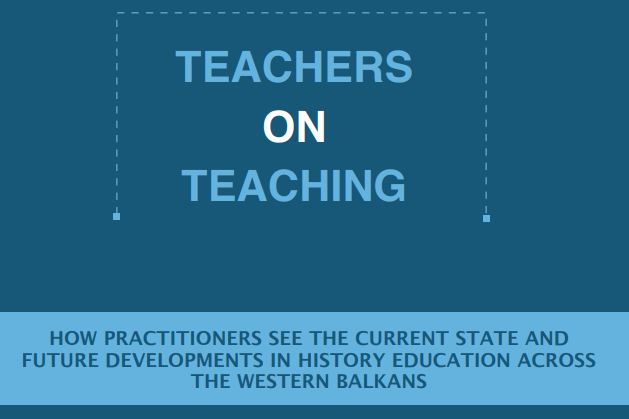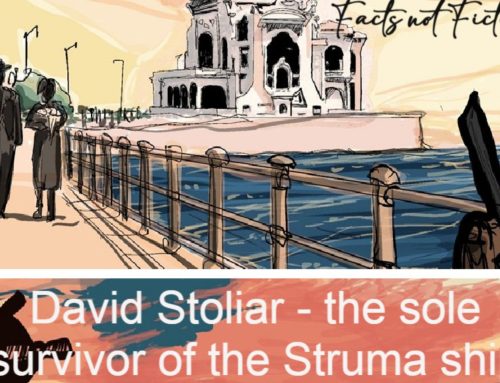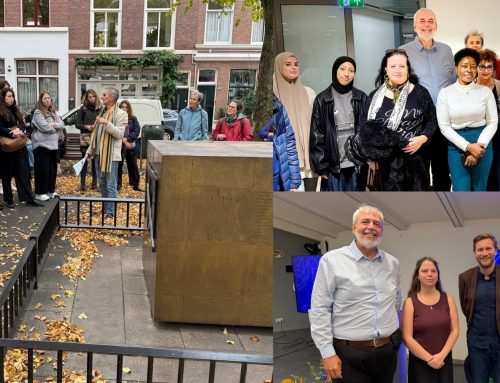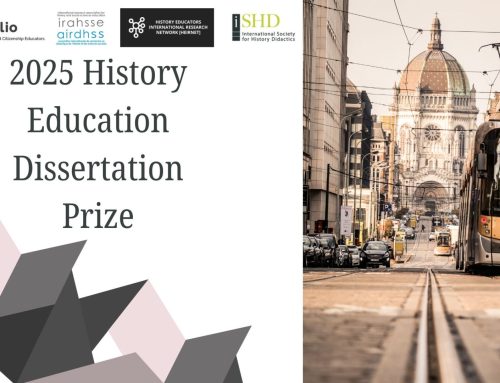The race starts with the morning dawn, rushing to get to school before everyone else. A quick review to the syllabus while putting all the papers in order will make some time until the students arrive, freshly prepared for a new day of learning. Using (and abusing) of the strength of their throat, lectures will be delivered along the whole day, answering questions to solve the curiosity of their students, while grading assignments that will be discussed the day after.
Although this could be the summarized description of the typical day in the life of a teacher elsewhere in the world, history teachers in the Western Balkans have a different story to tell. Within the overall context of transitional justice, overcoming the legacies of troubling pasts, teachers in Albania, Bosnia and Herzegovina, Kosovo, Macedonia, Montenegro, and Serbia are facing a rather challenging scenario, where peacebuilding and reconciliation are the goals at stake. How much do we know about the struggles these teachers are facing in classrooms on a daily basis? Particularly in the Western Balkans, little is known about teacher’s relations and reactions to the curricula dictated by state bodies, or about how they use the material prescribed by educational authorities. Also unknown are their strategies to deal with difficult topics in the classroom; those topics that might cause social or political controversy, but that are crucial for developing mutual understanding and conflict prevention for the future.
Acknowledging this gap of information, EuroClio, , together with national member organizations in the Western Balkans, worked on the ePACT project, which aimed at contributing to the democratization of educational reforms in the Western Balkans. This project, implemented with the financial support of the Austrian Development Cooperation, based its goals in the promotion of multiperspectivity and critical thinking, being aware of the fact that history teachers prepare young people for wrestling with several political, cultural, ethnic and ideological dilemmas. In pursuit of this conviction, two leading researchers -Rodoljub Jovanović and Dea Marić- conducted a large-scale mixed-methods study, looking into the needs and perceptions of the Western Balkans’ history educators. In a joined effort with experts and civil society organizations from the six countries aforementioned, this study was published in 2017, and now it is fully available in 7 languages of the region.
Rodoljub Jovanović, PhD candidate at the Center for Applied Ethics of DEUSTO University in Spain, and one of the leading researchers of this project, explained that the availability of the study in multiple languages will not only enable the inclusion of the teachers’ perspective in future educational reforms, serving as an input for policy-makers but also will empower educators to promote changes within their own contexts. “The report is going to be presented to decision-makers thus opening up the possibility for them to gain insight in the current problems and needs of teachers. We hope this would enable them to incorporate teacher’s perspective in future reforms. On the other hand, history educators are able to read the report in their own language and hopefully recognize the needs they have in their classroom. With this, we hope they would be empowered to speak up about the problems they encounter more often and even introduce some changes to their everyday work”.
Building up transnational bridges
Rodoljub Jovanović worked as a co-author with Dea Marić, who is a lecturer at the Faculty of Humanities and Social Sciences of the University of Zagreb. Together, these two scholars conducted a study that aimed at gathering scientific evidence of the teachers’ needs, starting from the acknowledgment that history education in the Western Balkans is “a very dynamic field”, as many educational reforms have been introduced over the past 20 years. “This did not leave enough space for the evaluation of the changing needs in history education”, Mr. Jovanović said, while explaining the need of “providing a well-structured and scientifically grounded outlet to present history teachers needs and problems to the wider audience (including decision makers as well as other interested stakeholders)”.
In this regard, the publication of the study in 7 languages, Albanian, Bosnian, Croatian, Macedonian, Montenegrin, Serbian, and English, “brings it closer to a wider audience of educators in each of the countries and creates a bridge between educators from different countries”. “They are not alone when it comes to many of the needs they have”, Mr. Jovanović concludes.
Check the reports here:
Teachers On Teaching ePACT Report – ALBANIAN
Teachers On Teaching ePACT Report – BOSNIAN
Teachers On Teaching ePACT Report – CROATIAN
Teachers On Teaching ePACT Report – ENGLISH
Teachers On Teaching ePACT Report – MACEDONIAN













